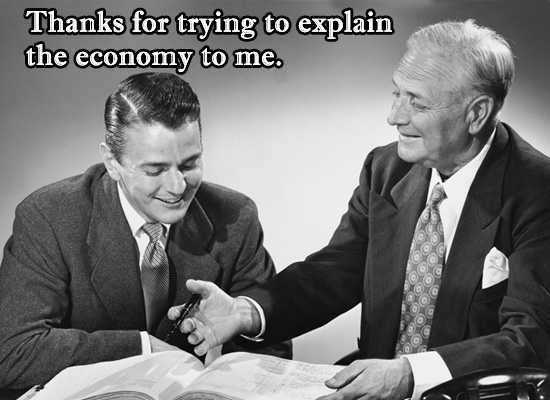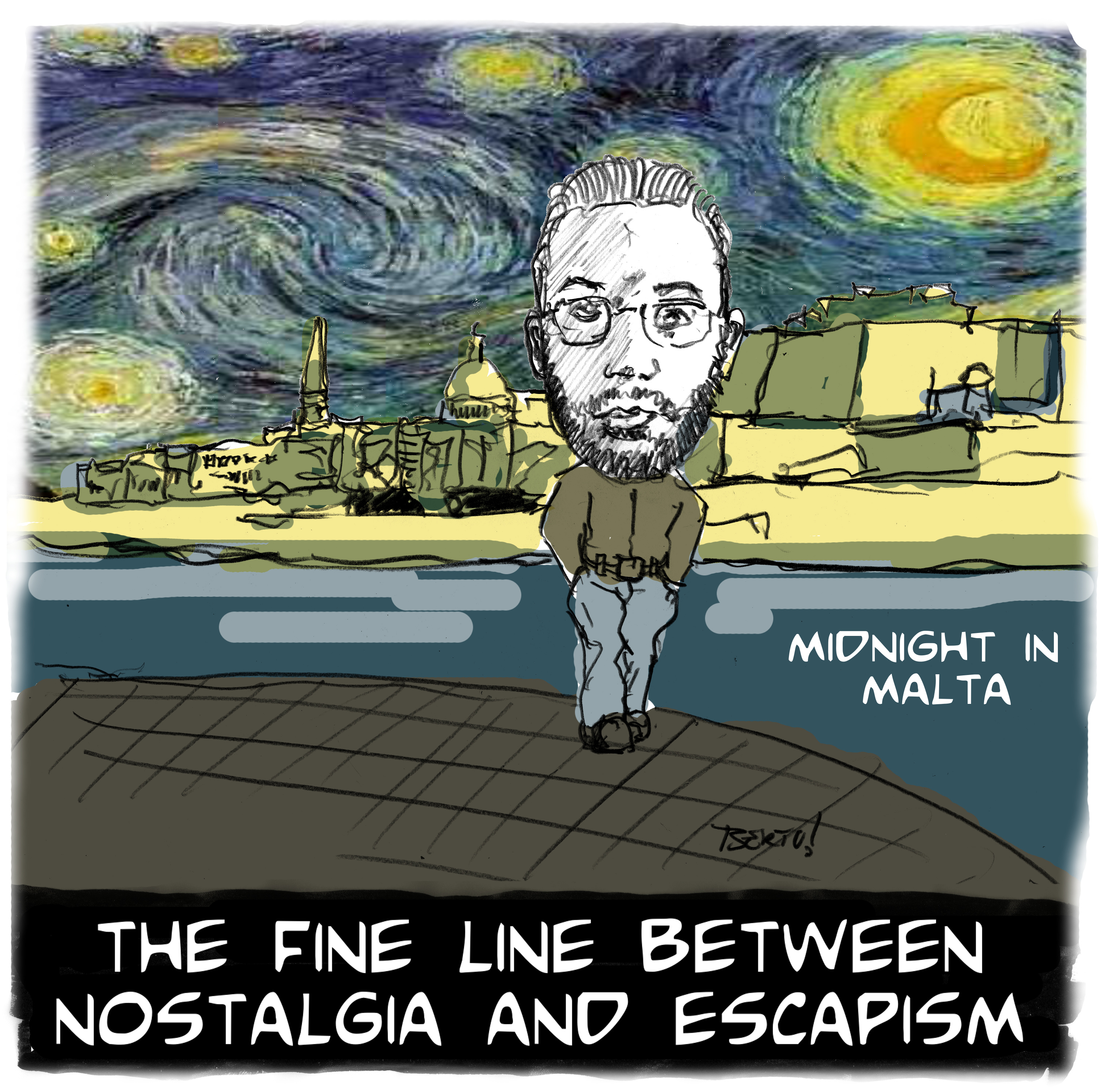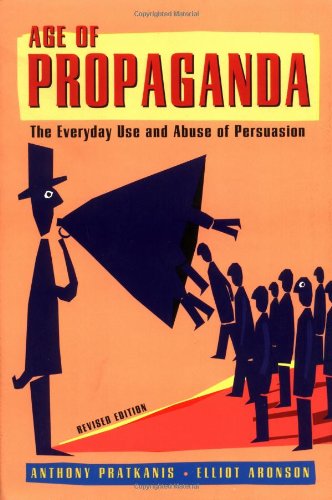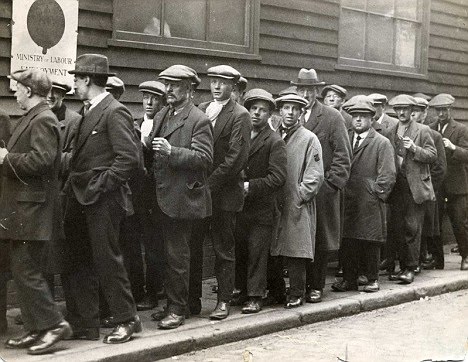This week I watched Midnight in Paris, Woody Allen’s latest invitation to an hour or so of light pseudo-intellectual engagement, and enjoyed every bit of the movie. Gil Pender, the protagonist played by Owen Wilson in this modern fable, is a Hollywood scriptwriter who happens to be in Paris with his fiancée while struggling to write his first novel. We witness Pender’s attempt to write his novel while trying to satisfy the needs of his rather shallow and socialite fiancée.
There is no real depth to Woody Allen’s characters in the movie but this is probably because he is busy eagerly exploring psychological themes. “Midnight’s” recurrent theme is very topical, especially in our current political climate, and deals with what is called “Golden Age nostalgia”. Our writer protagonist is plagued by this nostalgia and ends up travelling in time to the age he craves for most − Paris in the 20s. There he gets to meet his heroes from Scott Fitzgerald to Hemmingway, from Dali to Buñuel (Allen and his surrealist obsession) and while interacting with them he discovers, among other things, that even these people − living in what he considers to be the best age ever − themselves craved for a better age in the past: La Belle Époque Paris.
Nostalgia
“Midnight” is about artistic nostalgia. Over the past week we have witnessed a twisted form of nostalgia on our own shores. In between storms and floods that laughed in the face of the “Ghaqal” and “Serjetà” adverts, we were regaled with a battle of historic political propaganda. Political anniversaries tend to be more pronounced when the year is a multiple of five. There is no other reason for this than the fact that we think in decimals.
The 25th, 30th or 80th anniversary of an event has no deeper meaning than the 21st, 32nd or 11th. This is more so when the occasion is one of remembrance and not a celebration of endurance or longevity of some record. It’s one thing celebrating a long stretch of time − like an Independence anniversary or the founding date of a club for example − but remembrance is not about the time that has passed but about the meaning of what is being commemorated. On 11th November we do not go around counting the years since 1918 − we just remember and honour those who died for our freedom. That is the point: “Lest we forget”.
Which is why the fact that 25 years have passed since the tal-Barrani incidents should not be the main reason for remembering what happened and what we believed we were fighting for at the time. Yes, I definitely count myself among those who believe that this kind of episode in our history should not be forgotten and should be one of the learning blocks in the building of a nation. It is also not out of a twisted exercise of “balancing” between historical truths that I also believe that the “Interdiction” period for example is also part of our collective memory.
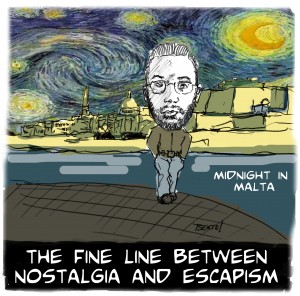
Luce
What happened this week though did not feel like remembrance. Remembrance does not use history as an instrument for current political campaigning. The feeling you got was that the memories were being used as a warning against the current Labour clan because they would bring us more of the same. As an unnamed blogger put it: “It’s like asking those who lived through the Second World War to dismiss a Nazi that seeks power. Forgive maybe, forget never.” By that rationale Labour would be eternally unelectable because it could never shed the historical links to an ugly past. Which is rubbish. There is a reason why the Nazi party has been outlawed and the Labour Party hasn’t.
That was the Nationalists shooting themselves in the foot by attempting to turn history into contemporary electoral propaganda. Then came the Labourites − and they went one better. I watched a clip from the ONE TV programme Inkontri that supposedly chronicled the work of post-1987 government till today (To see the full clip go to the blog www.akkuza.com on the post called “Daqqiet ta’ Harta”).
I felt physically sick. First it was evident that the effort was a counter-reaction to the tal-Barrani PN series. Worse though was the fact that it was clear to anybody with a brain between his ears that this was an effort at blatant political revisionism. Revisionism is not even the word. This was creative fantasy that falls to the same level as holocaust denial. You’d think that the PN governments since 1987 were run by a clan of Mintoff’s friends − from Ceausescu to Kim-Il Jong through Gaddafi.
The Labour Party still cannot come to terms with the fact that in a liberal society you do not lock up or gag people like Lou Bondì and Daphne Caruana Galizia but you get the right to answer and argue back or ignore them. The irony of watching the Inkontri presenter stand outside PN HQ and complain about how in today’s society the right of free expression has been completely negated, was in all probability lost on the fawning viewers.
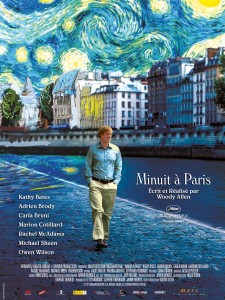
Golden Age
Back to Allen. The nostalgia for a Golden Age is described psychologically as a form of escapism. It is a form of denial of modern realities. The Nationalist Party might have committed a faux pas when appealing to the sense of solidarity that many of us had in 1987 when the call for “Work, Justice and Liberty” gave us an instant rush. The faux pas was not about remembrance but about its abuse. The distraction effect from today’s’ troubles is minimal and to be honest the transference of the sense of optimism and hope experienced at the time is nigh impossible. Better keep their feet to the ground.
As for Labour, the problems run deeper. Nostalgia does not help much but the past keeps raising its ugly head even when “those bastard Nationalists” are minding their own business. There’s worse. Labour acolytes must have experienced another psychological phenomenon mentioned in the Allen movie: “Cognitive dissonance”. Wikipedia describes this as “the discomfort caused by holding conflicting ideas simultaneously”.
When psychologists first studied cognitive dissonance they looked at groups that had predicted imminent disasters (such as the end of the world). They looked at what happened when the prediction failed − and noticed that such groups grew “by sharing the cult beliefs with others they gained acceptance and thus reduced their own dissonance” (Wikipedia). Another example often given is “smoking”. You know it is wrong for you but you smoke anyway − the two thoughts coincide uncomfortably in your mind.
Loyalty and Creed
Nostalgia is about thinking of the golden ages of our respective parties and of the events that made them stronger. Engaging heavily in nostalgia at the moment is very probably a form of escapist denial − a failure to engage with current issues and the present. The dissonance in the voters’ mind is between the side of him that wants to see his party as a solution − come what may − and the side of him that is beginning to see gaping flaws in the way forward that is proposed.
Muscat’s 51 proposals from another planet must have induced cognitive dissonance in many a Labour sympathiser. It was evident even in the comments on J’accuse. While the Labour Party was evidently pitching the list as a set of solutions (see the official email sent out explaining how Gonzi has only got questions but Muscat has solutions), sympathisers still insisted on “giving Muscat a chance” or about how this was just a “general plan” not the solution itself. Even given all the evidence in the world that the 51 proposals was just a list of propagandistic blah-blah, the Labour side of the brain fought desperately to “believe”.
Striking Twelve
The Belgians finally got a government this week. On 2nd December, the first day of government, a general protest was announced and thousands took to the streets protesting against the austerity plans. That baptism of fire was not enough though − an issue of Belgian government bonds was oversubscribed on the very same day. The news at the end of the day was about the mixed messages being given by the Belgian people (for a change). Was this an episode of national cognitive dissonance?
Whatever the case may be, we would do well to pull our socks up and leave nostalgia to historians. At times like this, positive governance and clear direction is not a luxury but a basic necessity − the less political games and distractions the better. Decisions such as investing in sustainable energy and power as well as reforming a justice system cannot and should not be taken lightly. The less time spent in futile propaganda wars the better.
It’s either that, or it’s midnight in Malta.
www.akkuza.com has been blogging non-stop since 10 March 2005. We haven’t stopped writing and you haven’t stopped reading. That’s a good enough reason to keep at it.
 Luxembourg is hanging onto its triple-A rating by the skin of its teeth. A string of the “well-to-do” nations in Europe wake up every Monday nowadays dreading the much-feared Standard & Poors downgrade from AAA to AA. Many still live in the land of make believe where they think that a downgrade is nigh impossible – even if the once mighty United States has already taken the punch. The national press here in the Duchy reported Ministerial songs of austerity and budget restrictions a week or so ago but there still seems to be an air of “this will never happen to us”. North of the border Elio di Rupo becomes Brussels first francophone Prime Minister since 1974 and has a government of 12 Ministers and 6 Secretaries formed just in time for the upcoming Treaty negotiations.
Luxembourg is hanging onto its triple-A rating by the skin of its teeth. A string of the “well-to-do” nations in Europe wake up every Monday nowadays dreading the much-feared Standard & Poors downgrade from AAA to AA. Many still live in the land of make believe where they think that a downgrade is nigh impossible – even if the once mighty United States has already taken the punch. The national press here in the Duchy reported Ministerial songs of austerity and budget restrictions a week or so ago but there still seems to be an air of “this will never happen to us”. North of the border Elio di Rupo becomes Brussels first francophone Prime Minister since 1974 and has a government of 12 Ministers and 6 Secretaries formed just in time for the upcoming Treaty negotiations.